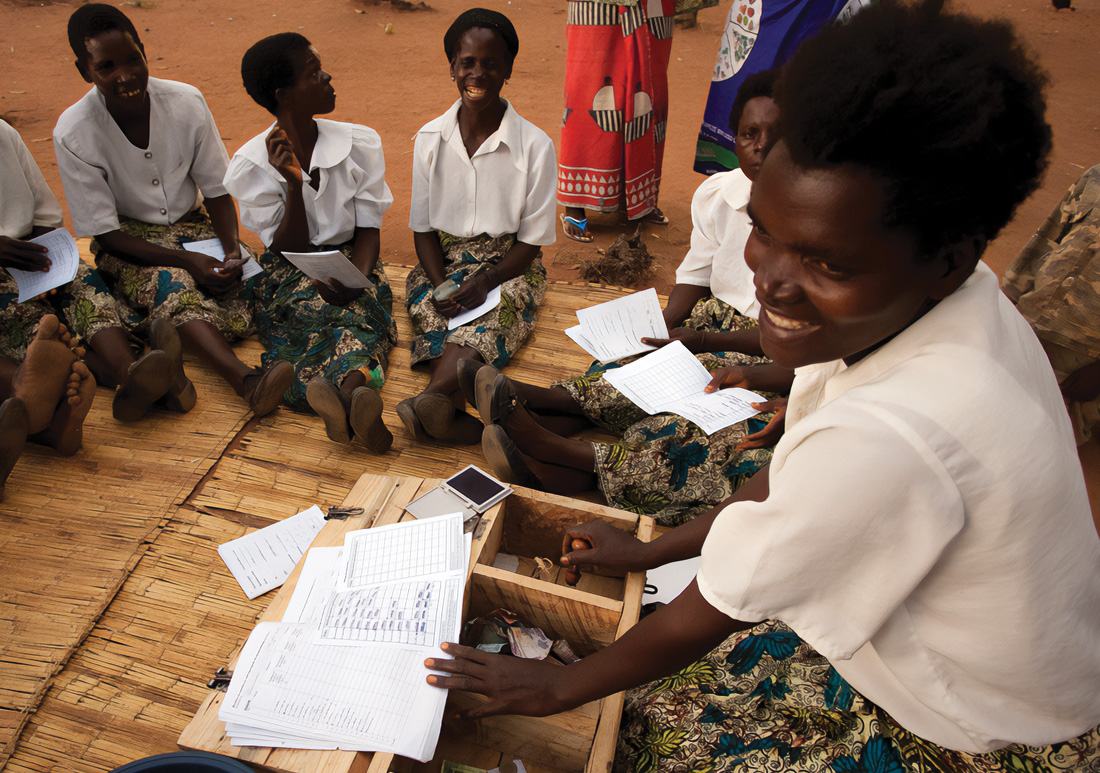
Peer groups—whether care groups, mother support groups, or village savings and loan groups—are important platforms that can help increase the adoption of health and nutrition behaviors in many different communities. However, results vary widely. Built on existing evidence, a better understanding of how programs can design, support, and sustain groups is needed. For example, systematic reviews show that women’s groups are more effective when practitioners design the topics with behavior change pathways in mind. A recent realist evaluation of the Care Group Model in Malawi sought to understand how, why, to what extent, and under what circumstances care groups improve infant feeding practices. The study found that nurturing the groups is as important as technical inputs into the modules.
To understand opportunities from the perspectives of groups themselves, starting in 2021, we partnered with the Amalima Loko Resilience Food Security Activity (RFSA) in Zimbabwe to conduct participatory research using a human-centered design (HCD) approach. In 2022, we began the process with the USAID-funded Akule ndi Thanzi RFSA in Malawi.
The purpose of the research was to help partners achieve their objectives and fill key global knowledge gaps around peer groups. Together with the groups, we used a participatory process to design and iteratively test feasible and sustainable solutions to the highest priority challenges facing groups.
The findings provide evidence that can help USAID and other stakeholders formulate future directions in the nutrition sector, specifically around peer groups as a key strategic approach for health and nutrition. Two briefs share prototypes and lessons learned from the process that may be useful to adapt to other contexts. A third brief describes best practices for using HCD research with RFSAs:
- Learning with Care Groups through Human-Centered Design in Zimbabwe
- Learning with Care Groups through Participatory Research in Malawi
- Do’s and Don’ts of Using Human-Centered Design Research in Resilience Food Security Activities
What is Human-Centered Design?
Human-centered design (HCD) is a creative approach to designing local solutions. It fosters innovation, prioritizes learning, and puts people at the center of public health solutions. HCD leverages tools and processes to help people think about problems and their solutions differently.
The Integration of HCD into SBC Programming
| The HCDExchange facilitated a webinar with the USAID Advancing Nutrition on Wednesday, October 25, 2023 that featured contributions from Riley Auer, SBC Project Officer (JSI/USAID Advancing Nutrition), Jacqueline Oliveira, Executive Designer (ThinkPlace), Angela Samba, Senior MNCH+N Advisor (Breakthrough ACTION), Rowena Merritt, SBC Specialist – Nutrition (UNICEF), and Munyaradzi Chinguwa, Senior HCD Designer (HCDExchange). This interactive webinar offered practical insights and invaluable lessons on integrating Human-Centered Design (HCD) approaches into Social and Behavior Change (SBC) programming, including how USAID Advancing Nutrition used complementary participatory research and design approaches to co-create feasible solutions in Zimbabwe and Malawi. |
Event Summary and Links to Resources
Defining a Quality Care Group: Findings from USAID Advancing Nutrition Participatory Research in Zimbabwe and Malawi
| During this webinar hosted by the Care Group Interest group, collaborators from USAID Advancing Nutrition highlighted the process and key findings of implementation research conducted with care groups in Zimbabwe and Malawi. Speakers also shared the local solutions co-developed with care group participants, which partners can use and adapt with communities. |